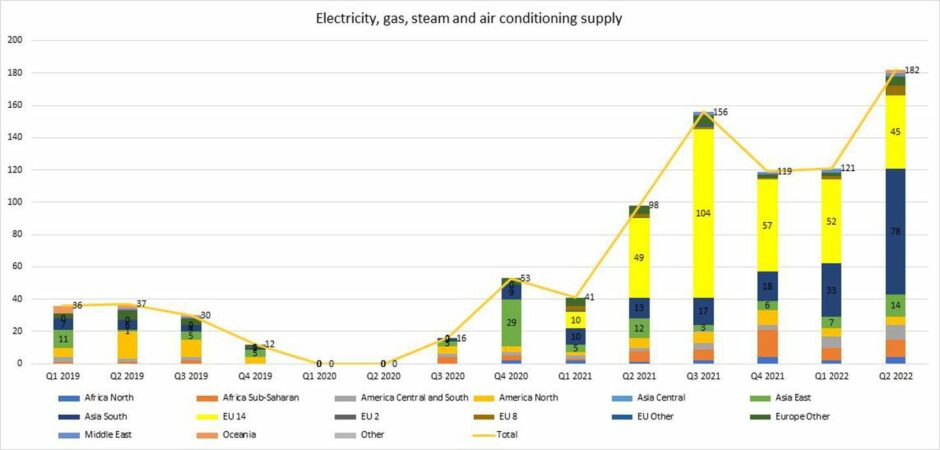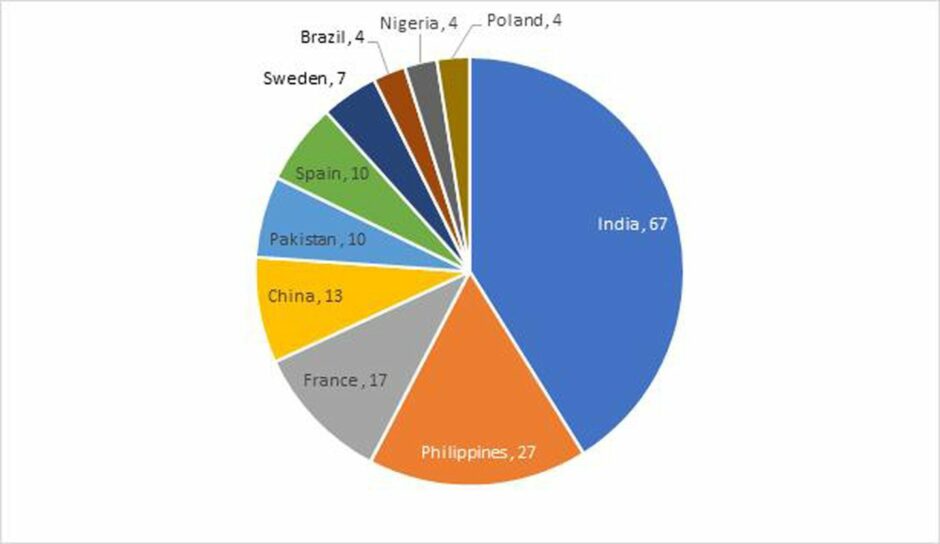
Energy companies are looking further afield to plug their skills gaps as the industry grapples with a tight resource pool.
Energy Voice has seen data on the number of skilled worker visa applications received by the Home Office for the category “electricity, gas, steam and air conditioning supply” since 2019.
It shows a huge post-Brexit increase in the number of entry permit submissions, particularly from South Asia.
Obtained under freedom of information (FOI), the figures also shine a light on the number of people from the European Union who now have to jump through hoops to work in the UK’s energy industry.
Jobs covered by the data include the production, transmission, distribution or manufacture of electricity, the distribution of gaseous fuels or trade of gas through mains, and steam and air conditioning supply
In the second quarter of this year, the Home Office received a total of 182 skilled worker visa applications from people wanting to work in the industry.
Of those, 78 requests were from South Asia, predominantly India, while 27 were also lodged by workers from the Philippines, who tend to be seafarers.
There were also a number of applications from France (17), China (13), Pakistan (10) and Spain (10).
For comparison in the first quarter of 2019, before the UK left the EU, just 36 skilled worker visas were submitted, seven of which were from South Asia.
At that time, workers from the EU 14 – Austria, Belgium, Denmark, Finland, France, Germany, Greece, Republic of Ireland, Italy, Luxembourg, the Netherlands, Portugal, Spain, Sweden – didn’t have to apply for permission to work in the UK.
Euan Smith, a partner in employment at legal firm Eversheds Sutherland, said: “The figures indicate a material rise in migrant workers coming into the UK to work in this sector since 2020.
“Brexit is certainly partly responsible for that: since 2020, Skilled Workers visas have been necessary for EEA nationals; previously, those workers had freedom of movement to come and work in the UK.
“What’s more interesting is that the numbers of skilled worker visa applications from non-EEA countries have risen materially, particularly from India and the Philippines. Those numbers are far greater than they were prior to Brexit and prior to the pandemic.”
Due in no small part to Brexit, many industries in the UK are struggling to fill employment gaps, with the unemployment rate at the lowest level since 1974.
Given its use of overseas contractors, the impact of skills shortages on the energy industry has been particularly acute.
Many companies have reported a lack of available talent, and there are fears plans to scale up North Sea production could amplify the issue.
Steps are being taken to address the problem though, including making it easier for workers to move between industries, as well as the government’s decision to scrap controversial IR35 reforms.
Mr Smith said: “In the context of a skills shortage in the UK energy sector, the figures suggest that businesses are adapting to the new environment by looking further afield for workers – and using permitted immigration routes to address those shortages.”

 © Supplied by Eversheds Sutherland
© Supplied by Eversheds Sutherland © Supplied by Eversheds Sutherland
© Supplied by Eversheds Sutherland © Supplied by Eversheds Sutherlan
© Supplied by Eversheds Sutherlan